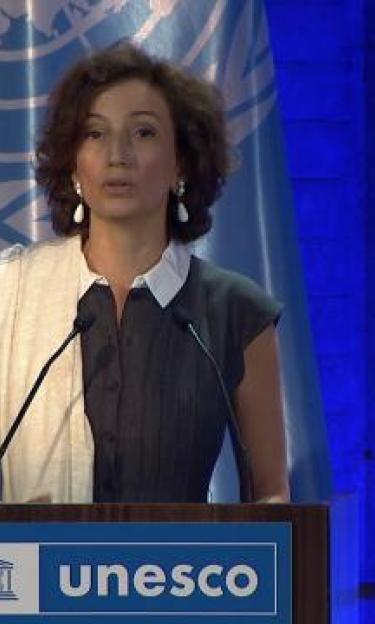This is a strong act of confidence, in UNESCO and in multilateralism. Not only in the centrality of the Organization's mandate - culture, education, science, information - but also in the way this mandate is being implemented today,Audrey Azoulay UNESCO Director-General
Indeed, in a letter sent to the Director-General, the U.S. Department of State welcomed the way in which UNESCO had addressed in recent years emerging challenges, modernized its management, and reduced political tensions.
Elected as the head of UNESCO in November 2017, Audrey Azoulay led the mediations that made it possible to reduce political tensions and find consensus on the most sensitive topics, such as the Middle East.
New initiatives have been launched enabling UNESCO to fully tackle contemporary challenges - such as the ethics of artificial intelligence or the protection of the ocean - while emblematic new field campaigns - including the reconstruction of the old city of Mosul, Iraq - have allowed the Organization to reconnect with its historical ambitions. Lastly, administrative reforms, rolled out since 2018, have made UNESCO more efficient and financially sound.
The return of the United States was made possible by the agreement reached by Congress in December 2022 authorizing financial contributions to UNESCO. The U.S. had suspended its contributions in 2011 due to domestic legislation, before notifying UNESCO of its decision to legally withdraw on 12 October 2017.
The proposed financing plan must now be submitted to the General Conference of UNESCO Member States for their approval. Some Member States have requested that an extraordinary session be held soon so a decision can be made.







